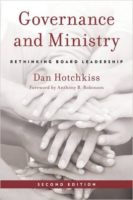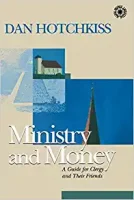
I used to run laps—now I am more apt to walk. Either way, I find that if I can muster the will power to begin, I can almost always finish the first lap. But if the loop is too short for a full run, I’m faced with a decision: should I quit or start my second lap? Lap number two is where adrenaline leaves off and perseverance gets its test. As we move out of 2020 into 2021, clergy and lay leaders face the challenge of rekindling energy for a year of new and different challenges.
For most of us, 2020 was a year for coping. Coping has required enormous work and creativity. Some congregations barely coped, while others took big steps ahead in spiritual depth, engagement, technology, and public witness. Looking ahead, we hope to see COVID restrictions eventually lift. Life should get easier in some ways—but we’ll have to do without the extra energy that comes at the beginning of a crisis.
Back to basics
If 2020 was a year for coping, 2021 is lap number two—a time for getting back to work, for finding motivation not in the adrenaline of crisis, but in re-commitment to ongoing work. This is a good time to shore up practices and habits that help congregations thrive in good times and bad.
What are those basics? Here’s my list, with links to some of our past articles you may find helpful:
Welcome newcomers. One of the many paradoxes that consultants see is that congregations who describe themselves as “friendly” generally do not look that way to visitors. Insiders see a room full of friendly people—and newcomers see the backs of people’s heads. Welcoming newcomers requires planning and intentionality, just as much in person in person as it does on Zoom. Before re-opening your building, pay attention to the messages it gives to passers-by and visitors. Take an inventory of the formal and informal practices that draw people in—or push them out.
Know your leaders. Congregations need well-formed teams of leaders, each with visionary leaders who inspire, task-driven leaders who get things done, and people leaders who can soothe hurt feelings and make everybody feel included. In times of crisis, new leaders step up to fill new needs, and former leaders sometimes need help stepping aside. If your team of leaders becomes toxic, now is the time to address the situation.
Equip the saints. All kinds of evidence confirms that outward-focused congregations are the most resilient. To focus outward, you need to address the barriers that keep your members from engaging the world effectively. This is not simply a matter of taking care of yourself first—though sometimes leaders need a little “hoodie time.” It means inviting people to identify opportunities for service and advocacy that fit the moment and the gifts your congregation has to offer.
Raise money. Some congregations have seen a substantial fall-off in contributions during the pandemic; others have experienced a surprising rise. In part, this is a matter of technique. If you still depend on people showing up in person to drop envelopes and cash into an offering plate, it’s high time to expand your online giving options. But the fundamentals of effective fundraising, now as always, are a compelling vision, a clear “ask,” and committed, well-trained askers.
Speak and act in public. In 2020, many congregations woke up to the fact that their silence and complacency have made them part of more problems than they knew. Christians, particularly, have seen their name used to support racial, sexual, and xenophobic violence, willful ignorance, and religious bigotry. Claiming a public voice on moral issues is not easy—it requires internal education, external partnerships, and the courage to risk losing people. One important starting point is to ask what role your congregation means to play in social ministry. Are you called to be like a hospital that heals the sick, or a medical school that equips people to be healers?
Focus on the congregation’s mission more than on its needs. It is all too easy for insiders to get into the habit of church-talk: budgets, buildings, and the practical details of programs, worship, and recruiting bodies to fill up the boxes on your org chart. It’s easy to give the impression that belonging to committees is the main way to live your faith. Healthy congregations build credibility by meeting people’s needs, and challenge people by inviting them to meet the needs of others. By attending to its core functions, the congregation earn the right to ask for people’s time and money as well.
Who owns a congregation?
The true “owner” of a congregation is not its denomination or its members or its leaders but its mission. Strategic planning, at its best, is a way to discern the mission—that small part of God’s will that belongs to us here now. Planning is important, but our mission is accomplished mostly through consistent, day-to-day attention to our core tasks and responsibilities.
We could sprint through 2020: last year was, in so many ways, a crisis. In 2021—our lap number two—we hope for better even as we fear for worse. Either way, we need to find a pace we can sustain. That means we must choose well where to apply the energy and gifts at our disposal to do our part to improve the lives of our congregants and neighbors far and near.
Dan Hotchkiss has consulted with a wide spectrum of churches, synagogues, and other organizations spanning 33 denominational families. Through his coaching, teaching, and writing, Dan has touched the lives of an even wider range of leaders. His focus is to help organizations engage their constituents in discerning what their mission calls for at a given time, and to empower leaders to act boldly and creatively.
Dan coaches leaders and consults selectively with congregations and other mission-driven groups, mostly by phone and videoconference, from his home near Boston. Prior to consulting independently, Dan served as a Unitarian Universalist parish minister, denominational executive, and senior consultant for the Alban Institute.


